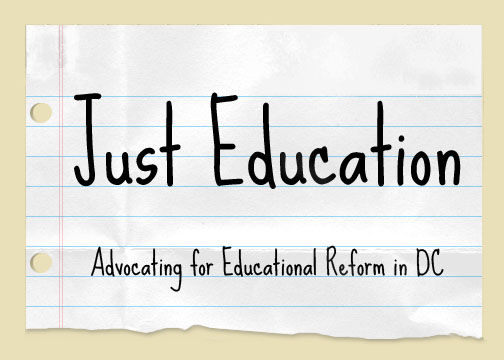By: Jonathon Munoz
As students of Georgetown University we find ourselves in a unique situation. Not only do we each bring with us a particular set of conceptual tools and personal skill sets with which to assess and solve problems, but as students in D.C. we also have an opportunity to use our individual resources to advance social justice issues both locally and nationally.
Our focus on educational issues does not only stem from its inextricable relation to the social sphere as a whole, but we choose to focus on it because it is a process with which all have intimate and familiar knowledge. Bringing with us varying personal perspectives formed in different local educational contexts, we have the ability to have a very diverse dialogue with others. It is this dialogue that is the kernel of social justice, and it is the extension of this dialogue that is the raison d’etre of this advocacy committee.
Already Georgetown University D.C. Reads has been tutoring students throughout the district, ensuring that underserved students have the same opportunities and resources as children in schools with more favorable socio-economic backgrounds. As our program expands it is important to not restrict our efforts to merely giving students on the margin a more pronounced voice. We must also give a voice to this process itself. It will not suffice to treat the symptoms of underlying educational injustices; we must seek to combat them at their systematic roots. However, no problems are solved unannounced, and we cannot even begin to formulate solutions to problems that we are unaware of. For this reason the Advocacy committee must focus on the stability of visibility. In other words, it is not enough to periodically make it known that every day D.C.P.S. students are dropping out of high school or that every year they are performing below the national average in the N.A.E.P., we must make it known what this state of affairs truly is: a crisis.
Also, as students in the capital of the United States, we also have access to state resources. Most of us come from a different state, with its own educational problems and economic woes. While we cannot change the state of education on a national scale, we can begin to advocate for the common good even if on a small scale. Advocating for educational justice in states would consist of research into current state policies, as well as contacting persons from your home states who can influence policy, and to make your views known. Also, when researching into state issues we also have a chance to interact with different educational models. As a self-sufficient educational entity D.C.P.S. serves as a sort of microcosm in which we can more acutely penetrate the social and educational problems that face many of our home states. Both the D.C. educational system and our state systems can gain from our assessments, comparisons, and criticisms.
For all the above reasons we set the following goals to guide our ideas and to measure our progress.
The seven planks of the Georgetown University D.C. Reads Advocacy Committee:
- Make the educational crisis in D.C. visible.
- Make the activities and resultant progress of D.C. Reads more visible in the Georgetown community and D.C. community as a whole.
- Conduct research into the impact of auxiliary educational programs in the district.
- Advocate for literacy education in underserved schools in the district.
- Research local and state educational issues and proposed policy solutions, taking note of the dynamic between the general standards of literacy and the available resources for their fulfillment.
- Advocate for particular state policies that benefit the advancement of literacy.
- Plan and execute programs that inform Georgetown students and community members about literacy issues and to provide them with tools with which they can confront them.

No comments:
Post a Comment